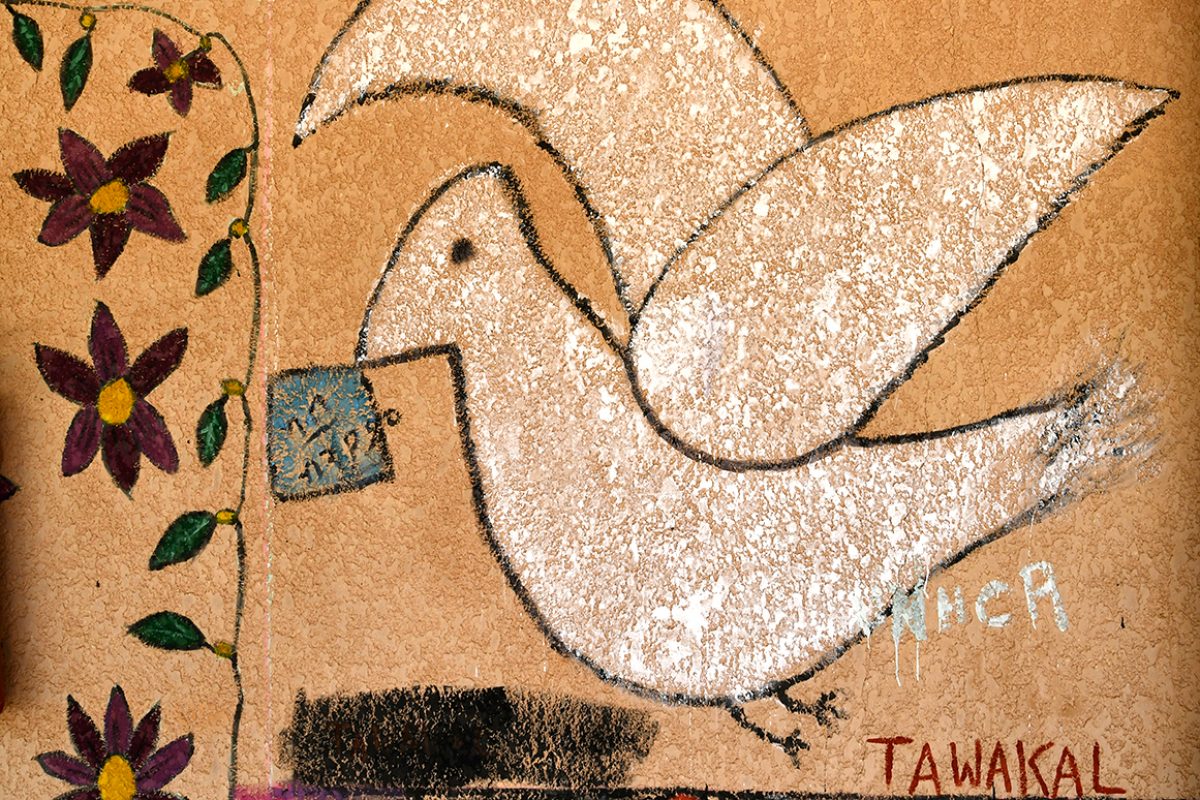Unaccompanied Refugee Children in Niger Need More and Faster Resettlement

Governments need to allocate larger quotas for resettling unaccompanied refugee children evacuated from Libya to Niger and the processing times need to be shorter, humanitarian expert Nathalie Achten urged an international gathering in Geneva today.
“In Niger, I regularly visit the centers where unaccompanied children are staying. The last time I went to a center where 85 Eritrean boys aged 14-17 years are living, I was met outside by Samuel, a 14-year-old boy. He is one of the youngest children we have. He showed me a baby kitten that he had rescued a few days ago. He looked at me and asked: ‘Can I take her with me to Germany?’”
With these words, child protection expert Nathalie Achten brought the reality she faces daily in her work to the attention of government and civil society representatives participating in the Annual Tripartite Consultations on Resettlement (ATCR) led by the UN Refugee Agency (UNHCR) in Geneva from 25-27 June.
Ms. Achten, who has been deployed by the International Catholic Migration Commission (ICMC) to support the UNHCR resettlement operation in Niamey, Niger, advocated for larger resettlement quotas for unaccompanied children and for shorter processing times.
She continued telling the story of Samuel, explaining that he should go to Germany where his sister lives because what he needs right now is a safe place with family support. “But I know,” she said, “that we have reached the ceiling for submissions to Germany [and] I can’t tell him that! […] So, all I can do is smile and say: ‘Let’s see,’ while hoping that we will find a way.”
Niger is currently hosting 254 unaccompanied children who have been evacuated by UNHCR from Libya under the Emergency Transit Mechanism and are waiting to be resettled to third countries. Most are 16-17-year-olds, but some are as young as 14. “The challenge is that we don’t always have enough resettlement places for them while other pathways, such as family reunification, may take a very long time,” said Ms. Achten.
Under these conditions, resettlement is moving at a very slow pace: only nine children have been resettled so far, with three more scheduled to depart later this year. “Most children arrived between December 2017 and February 2018, which means they have already spent several months in Niger and are in urgent need of resettlement,” Ms. Achten explained.
The long waiting times and uncertain future are hard on the children, who have faced extremely traumatic experiences and are in need of a stable environment, possibly with family members, where they can start to recover. The longer they wait, the more they lose hope.
“The children start to think that maybe they are unwanted. Delays in processing their cases are perceived as rejection,” Ms. Achten said. “They tell me: ‘Last night a plane with adults left for a resettlement country. Why doesn’t anyone take children? We’ve been here for six months! Why does no one want us? What’s wrong with us?’”
The yearly ATCR meeting involves government representatives from resettlement States, NGOs involved in refugee resettlement, intergovernmental and international organizations, and the UN Refugee Agency. The gathering seeks to promote greater transparency and to develop innovative ways to improve resettlement for refugees. This year’s focus is on “Towards expanded and effective resettlement”.
ICMC has been deploying resettlement experts for over 15 years. Managed in partnership with the UNHCR, the Resettlement Deployment Scheme consists of a pool of more than 400 qualified professionals from diverse backgrounds who are ready to be deployed on short notice to UNHCR’s field offices whenever crucial support is needed.
- Read the statement.

